Pimples, blackheads, and breakouts are bad enough on their own, but acne scars and marks are a whole other level of frustrating. Even if you clear out the acne successfully, acne scars can be a painfully permanent reminder of your past skin struggles.
Instead of suffering from low self-esteem or trying to cover it up with makeup, it’s time to get rid of those marks. Whether you choose to do it at home or with a professional, here’s a quick comprehensive guide on how to clear acne scars.
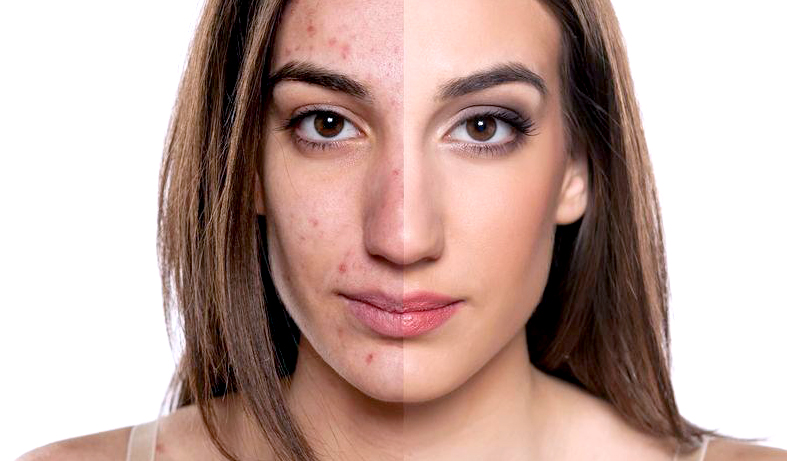
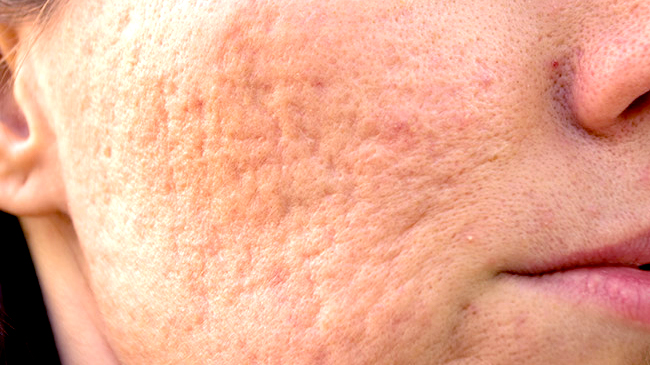
What Causes Acne Scars?
Acne scars and marks usually appear on the skin after a breakout. When acne lesions caused by papules, pustules or cysts become inflamed, they run the risk of causing permanent damage to the skin’s surface. They may vary in appearance but generally manifest as red/brown marks, depressions in the surface, or raised skin textures.
8 out of 10 people aged 11 to 30 get acne but not everyone is affected by acne scars in the same way. Some people are more prone to long-lasting acne scars due to genetics, skin type, or bad skin habits. People with lighter skin tones are more prone to scarring while those with darker complexions are more often plagued by post-acne hyperpigmentation.
Sun exposure can cause blemishes to darken, making them last longer and harder to remove. Other habits like picking at and popping pimples can worsen inflammation and scarring as well.
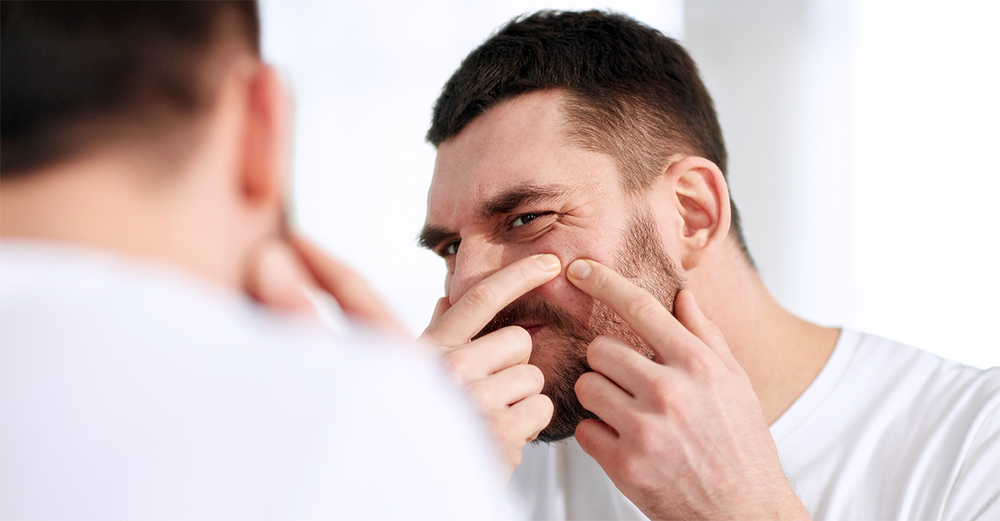
Types Of Acne Scars
We lump together many different kinds of skin damage under the term “acne scars” but there are, in fact, many different kinds. Once you know what kind of scarring you have, you can find the most appropriate way of treating it.
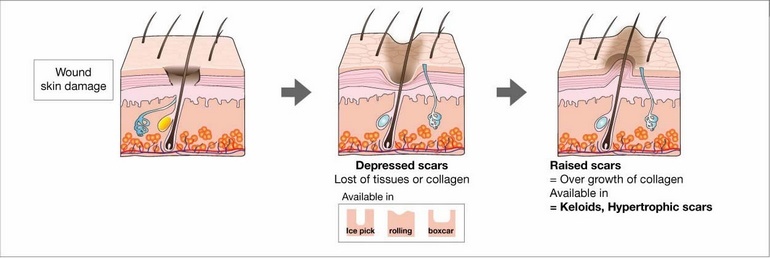

Skin Discoloration
Also known as acne marks or post-inflammatory hyperpigmentation, skin discoloration isn’t technically an acne scar. However, these can remain visible for months or even years after the pimple has disappeared. Characteristics of skin discoloration include broken blood vessels on the face, red lesions, or brown marks on the surface of the skin. Skin discoloration is smooth to the touch.
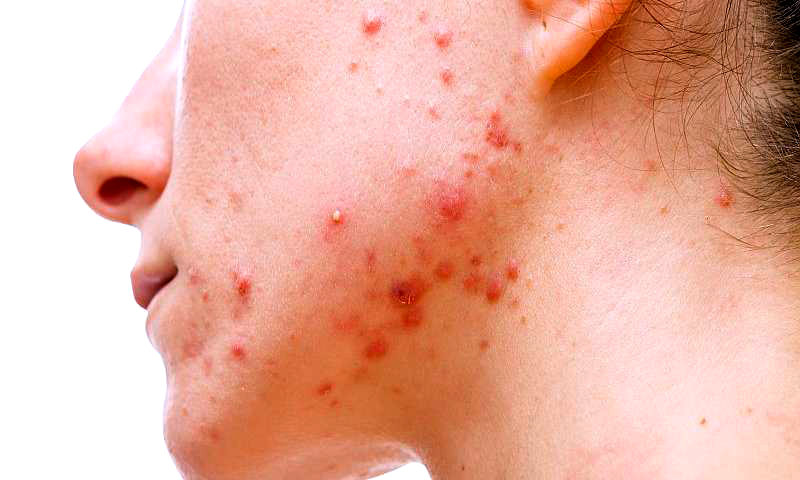
Raised Acne Scars
Raised acne scars can give off the appearance of rough skin texture. These are caused by excessive collagen and enlarged growths of tissue on the face. They may look like cystic acne or closed comedones and are firm/tender to the touch. Raised acne scars are also called hypertrophic scars or keloids.
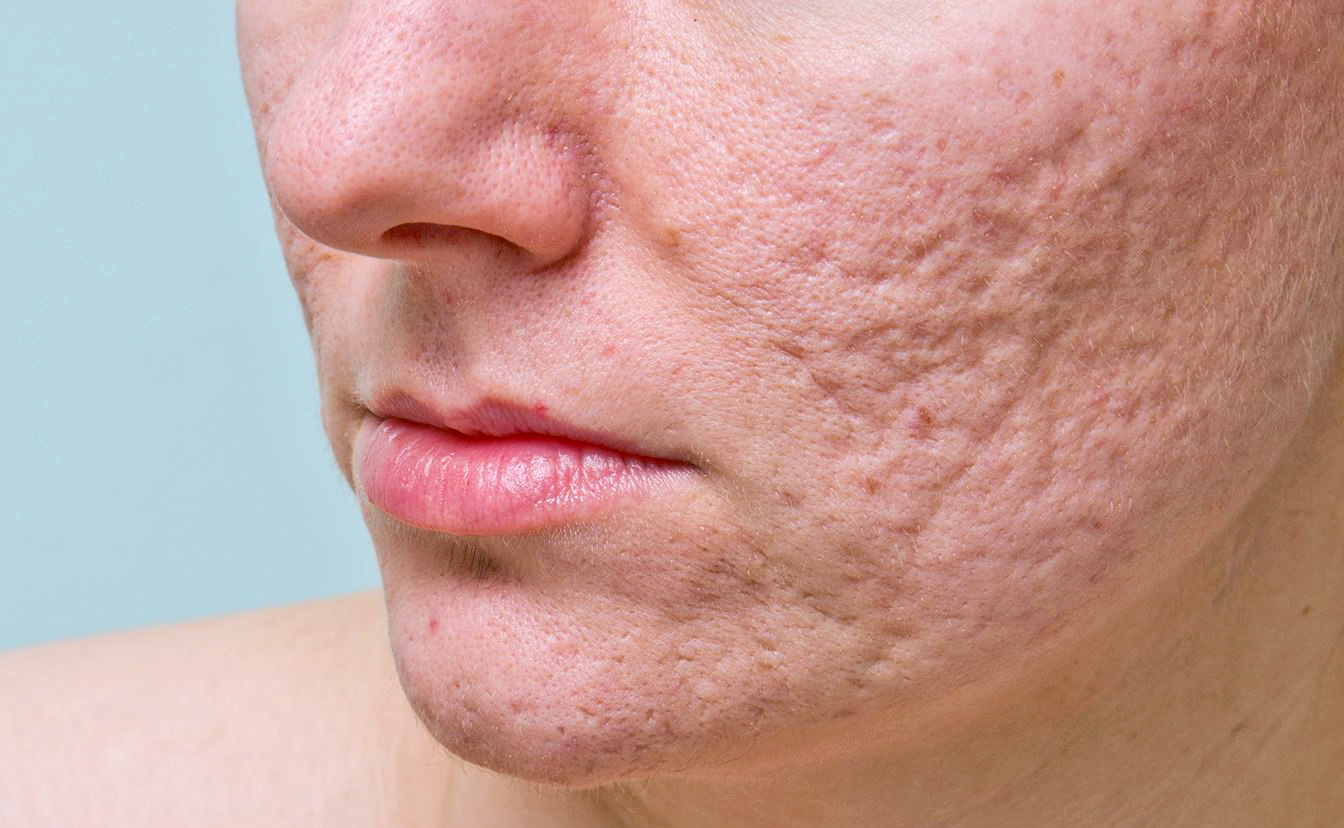
Depressed Acne Scars
If you have small pits or craters on the face, then you have depressed acne scars. These happen when there is not enough tissue made during the acne healing process. There are three main kinds of depressed acne scars:
• Ice pick: sunken, pin-prick like depressions in the skin; may resemble enlarged pores
• Boxcar: sharp, wide, shallow depressions with angular edges
• Rolling: wave-like, wide, shallow depressions with rounded edges
How To Treat Acne Scars
Some dark marks and scars go away on their own with time, but you can definitely speed up the process. There are many different scar treatment methods, both DIY and professional, that you can employ to reduce the appearance of acne scars.
Everyone’s skin needs are unique, so there’s no single solution for everyone, and the same solution can produce very different results in different people. Some dermatologists will even recommend that you combine different methods to get maximum results. Here are the various ways you can minimize acne scars.
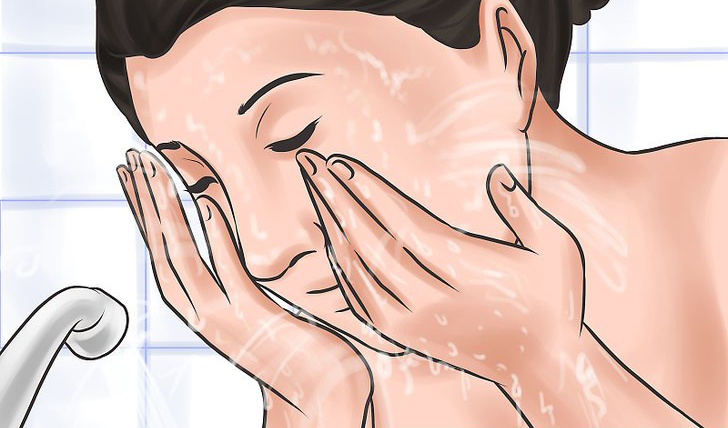
Prevent Scars From Forming
The best way to reduce acne scars? Don’t get them in the first place. Don’t use harsh, irritating facial scrubs. Cleanse your face once or twice a day. Switch to non-comedogenic makeup and skincare products. Never pop or pick at your pimples. Always use sunscreen, even on cloudy days. For those who are worried of their sensitive skin, we would recommend using a medical grade skincare to help curb the problem before it turns into scar. Our Pristine skincare line contains essential ingredients for every types of skin.

Talk To A Dermatologist
Our expert doctors will be able to recommend the best course of treatment and educate you on how to prevent future scarring. Some of the methods we recommend include microdermabrasion, chemical peels, acid peels, fillers, surgical incisions, laser treatments, or oral antibiotics.
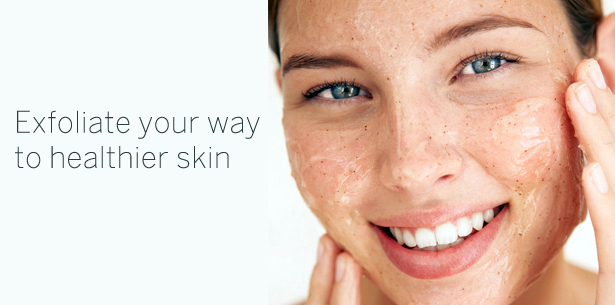
Exfoliate Regularly
For those wondering how to remove acne scars or at least reducing their appearance; exfoliation is a safe and effective supplementary treatment. Once or twice a week, make sure to exfoliate to get rid of dead skin cells and promote skin cell turnover. Swap out your abrasive physical scrubs for a gentle chemical exfoliator, like alpha hydroxy (glycolic) acids or beta hydroxy (salicylic) acids.
Use The Right Products
Introduce anti-inflammatory and skin-brightening products like vitamin C, vitamin E, tretinoin/retinol, or collagen. Used correctly and in the right amounts, these can fade pigmentation, shrink pores, prevent acne, and smoothen out skin.
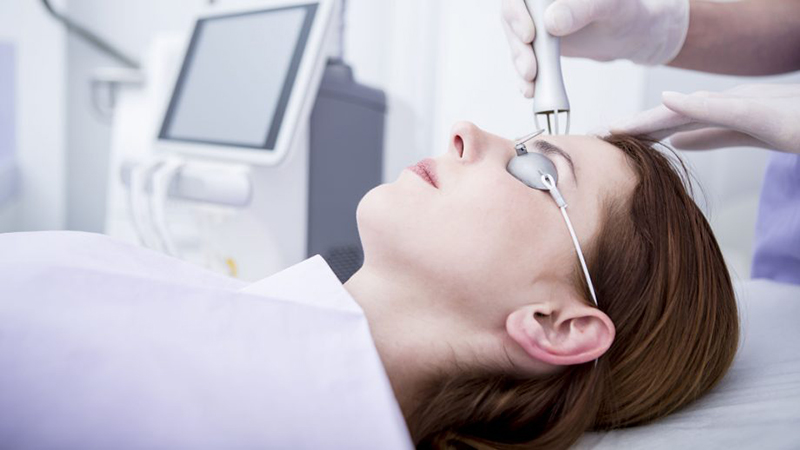
Get Laser Treatment For Acne Scars
For a more instantaneous effect, we would recommend using laser treatment. Fractional Laser Resurfacing is best for those with severe scarring or people who just want a fast, safe, and effective way to remove acne scars. It promotes younger, healthier skin by speeding up your skin’s natural healing process. Thanks to advancements in technology, there is basically no downtime or discomfort during the treatment process. Make your reservation now with our expert doctors to have the best laser treatment in town!
Pico Laser for Perfect Skin
Dr Vanessa was spotted performing a Pigmentation Removal Laser
Acne Scar Treatment FAQ
Can I Use DIY Home Treatments To Get Rid Of Acne Scars?
While many blogs can claim to provide you with at-home recipes to brighten skin and lighten marks, crafting your own skincare products is very risky. Best case scenario is that it works; worst case scenario is that it makes your acne scars even worse while exacerbating other skin problems.
Will Washing My Face More Often Reduce My Acne Scars?
Dermatologists do recommend that you wash your face once or twice a day to remove dirt, debris, and oil, but over-washing can dry out and irritate your skin. Cleansing, on its own, does not minimize scarring.
Any Other Tips For Good Skin?
-Drink lots of water.
-Eat healthy food and increase your fruit/veggie intake.
-Remove your makeup before sleeping.
-Do not over-exfoliate or use too many products.
-Do research before you buy products or undergo any kind of acne scar treatment.
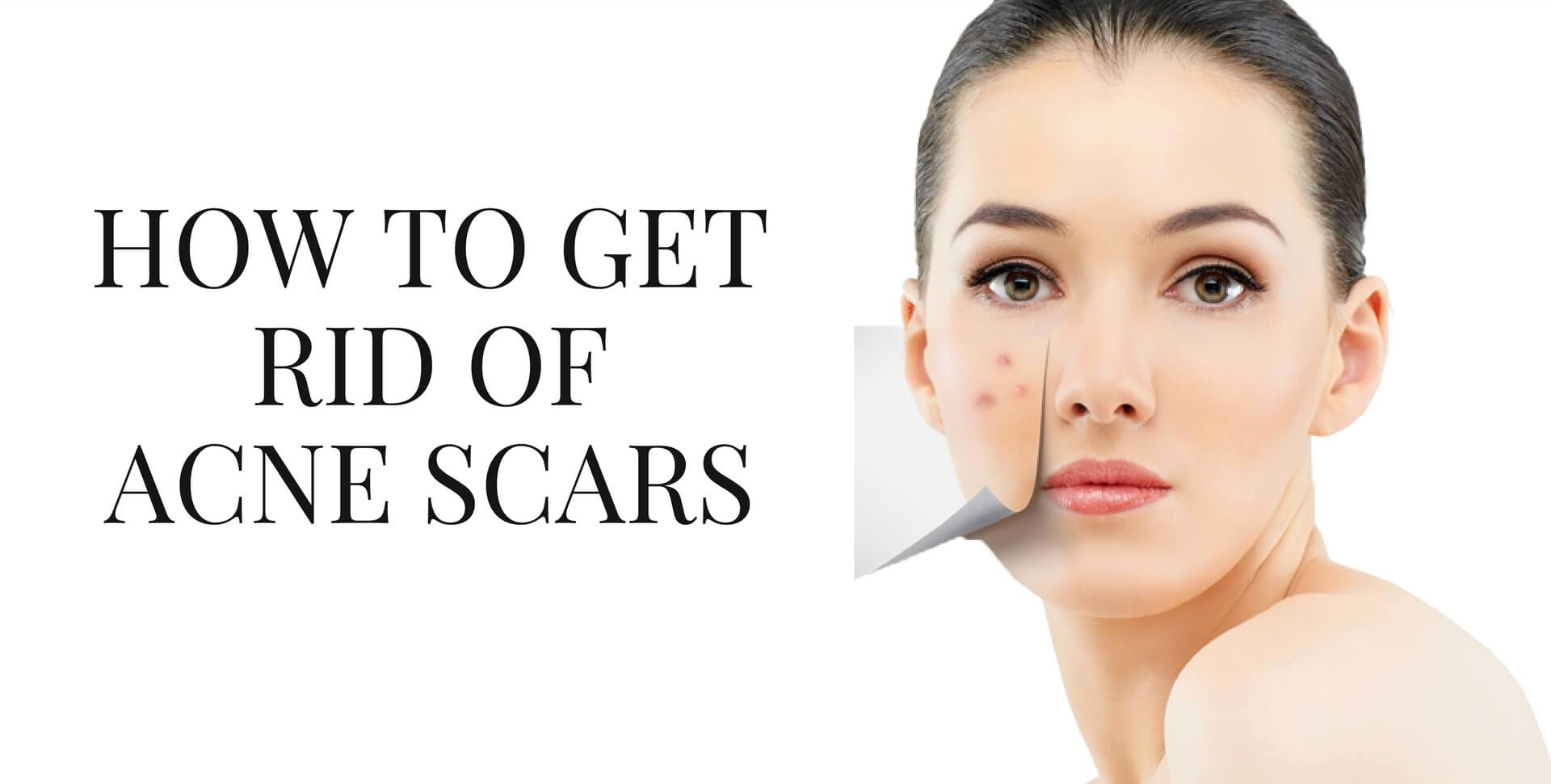
Conclusion
Acne scars can be a huge source of embarrassment or frustration for many, but it doesn’t have to be. Consult with a dermatologist to start looking for options, and begin your journey to better, brighter, clearer skin.
Premier Clinic offers FREE CONSULTATION session for those who are having the acne scar problem. Kindly revert to our Whatsapp at 012-662-5552 or email at contactus@premier-clinic.com where our friendly customer service will help you to make an appointment.


